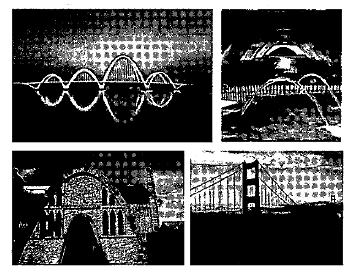If the roots of the quadratic polynomial are equal, are the discriminant D=B2−4AC, then:
D>0
D<0
D≥0
D=0
The correct Answer is:D
Step by step video, text & image solution for If the roots of the quadratic polynomial are equal, are the discriminant D=B^2-4AC, then: by Maths experts to help you in doubts & scoring excellent marks in Class 10 exams.
Updated on:21/07/2023Topper's Solved these Questions
- SAMPLE PAPER 6BOOK - OSWAL PUBLICATIONCHAPTER - SAMPLE PAPER 6EXERCISE - Section - A
6 Videos
- SAMPLE PAPER 6BOOK - OSWAL PUBLICATIONCHAPTER - SAMPLE PAPER 6EXERCISE - Section - B
5 Videos
- SAMPLE PAPER 5BOOK - OSWAL PUBLICATIONCHAPTER - SAMPLE PAPER 5EXERCISE - Section -C
2 Videos
- SAMPLE PAPER 7BOOK - OSWAL PUBLICATIONCHAPTER - SAMPLE PAPER 7EXERCISE - Section -C
7 Videos
Similar Questions
The below picture are few natural examples of parabolic shape which is represented by a quadratic polynomial. A parabolic arch is an arch in the shape of a parabola. In structures, their curve represents an efficient method of load, and so can be found in bridges and in architecture in a variety of forms.

If the roots of the quadratic polynomial are equal, where the discriminant D=b2−4ac, then
View SolutionThe below pictures are few natural examples of parabolic shape which is represented by a quadratic polynomial. A parabolic arc is an arc in the shape of a parabola. In structures, their curve represents an efficient method of load, and so can be found in bridges and the architechture in a variety of forms.
If the zeroes of the quadratic polynomial are equal, where the discriminant D=b2−4ac, then

View Solution
Knowledge Check
If the zeroes of the quadratic polynomial ax2+bx+c,c≠0 are equal,then
Ac and a have opposite signsBc and b have opposite signsCc and a have the same signDc and b have the same signIf the zeroes of the quadratic polynomial x2+(a+1)x+b are 2 and -3 ,then
Ax2+(a+1)x+b are 2 and -3 ,thenBa=5,b=−1Ca=2,b=−6Da=0,b=−6If the zeroes of the quadratic polynomial x2+(a+1)x+b are 2 and -3, then
Aa=−7,b=−1Ba=5,b=−1Ca=2,b=−6Da=0,b=−6
If the roots of quadratic equation are equal , then the discriminant of the equation is ______
View SolutionIf both the zeros of the quadratic polynomial ax2+bx+c are equal and opposite in sign, then find the value of b.
View SolutionDetermine the nature of the roots of the following quadratic equations from their discriminants :
x2−4x+4=0
View SolutionWrite a quadratic polynomial, whose zeros are 2 and 4.
View SolutionDetermine the nature of the roots of the following quadratic equations from their discriminant :
(i) 2x2−3x−4=0 (ii) x2−2x+94=0.
View Solution
